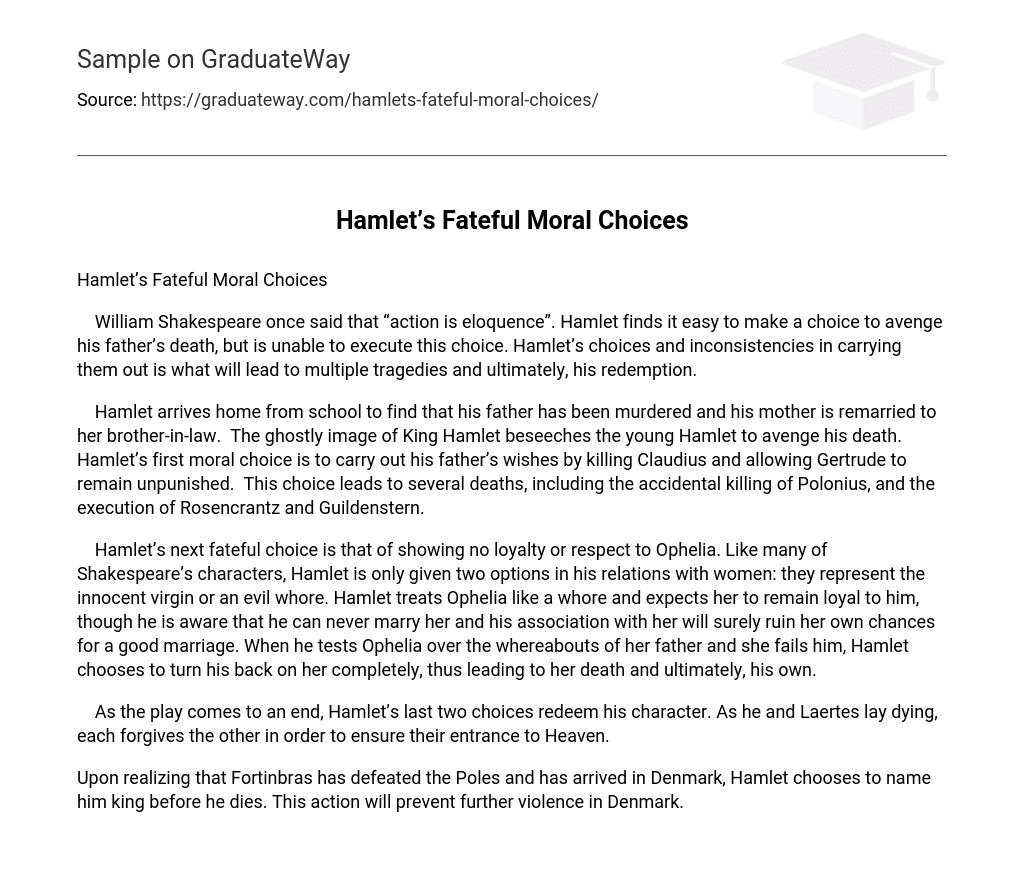William Shakespeare once said that “action is eloquence”. Hamlet finds it easy to make a choice to avenge his father’s death, but is unable to execute this choice. Hamlet’s choices and inconsistencies in carrying them out is what will lead to multiple tragedies and ultimately, his redemption.
Hamlet arrives home from school to find that his father has been murdered and his mother is remarried to her brother-in-law. The ghostly image of King Hamlet beseeches the young Hamlet to avenge his death. Hamlet’s first moral choice is to carry out his father’s wishes by killing Claudius and allowing Gertrude to remain unpunished. This choice leads to several deaths, including the accidental killing of Polonius, and the execution of Rosencrantz and Guildenstern.
Hamlet’s next fateful choice is that of showing no loyalty or respect to Ophelia. Like many of Shakespeare’s characters, Hamlet is only given two options in his relations with women: they represent the innocent virgin or an evil whore. Hamlet treats Ophelia like a whore and expects her to remain loyal to him, though he is aware that he can never marry her and his association with her will surely ruin her own chances for a good marriage. When he tests Ophelia over the whereabouts of her father and she fails him, Hamlet chooses to turn his back on her completely, thus leading to her death and ultimately, his own.
As the play comes to an end, Hamlet’s last two choices redeem his character. As he and Laertes lay dying, each forgives the other in order to ensure their entrance to Heaven.
Upon realizing that Fortinbras has defeated the Poles and has arrived in Denmark, Hamlet chooses to name him king before he dies. This action will prevent further violence in Denmark.





